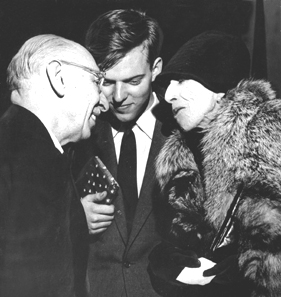 Out of Africa by Isak Dinesen
Out of Africa by Isak DinesenMy rating: 3 of 5 stars
I was surprised to discover that the book is nothing at all like the move starring Meryl Streep and Robert Redford.
Written in English (Blixen was multi-lingual), there is no real hint of the marriage to Baron Bror Fredrik von Blixen-Fineck and their separation in 1920-21 and subsequent divorce in 1925. Nor is there anything more than a subtle hint of the affection for Denys George Finch Hatton (as portrayed by Robert Redford in the movie).
And who could have known that Blixen suffered from syphilis, courtesy of her philandering husband?
This is an interesting work and reads in part like a diary. Various scholars consider the style and arrangement of the book into certain themes and chronological devices, but this didn't strike me as anything special. It was Blixen's obvious feeling and emotion and love for life in British East Africa (Kenya) that drives the stories.
One cannot help but be sad when she leaves the farm. One can only imagine, too, what it would be like to live in that timeless place.
Having said that, the attitude toward the original inhabitants of Kenya reads like any other historically-inspired work of the 1930s, with frequent literary comparisons - as opposed to overtly racist vilification - of some of the characters to monkeys and other animals of the area. Indeed, it is hard to escape the imperialist attitudes of the times and how, given the people had lived on the land for generations, Colonialism suddenly relegates them to the status of squatters (six months of labour in exchange for living on and utilising the uncultivated land of the white farmers).
There is a much admiration for "the noble savage" that permeates the work, despite Blixen's obvious love for Africa.
More interesting are the stories of Blixen herself - partly captured in the movie - and that she was nominated for the Nobel Prize for literature several times, losing out to John Steinbeck and Ernest Hemingway.
Blixen was quite the character, and her other works might be worth investigating. But it is difficult to identify with her in her Colonial context. To be sure, the work captures the place and times, but living in the post-Colonial era, one can only wonder at the past.
View all my reviews
 Donate
Donate


%20CC0.jpg)



